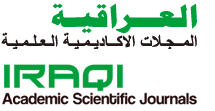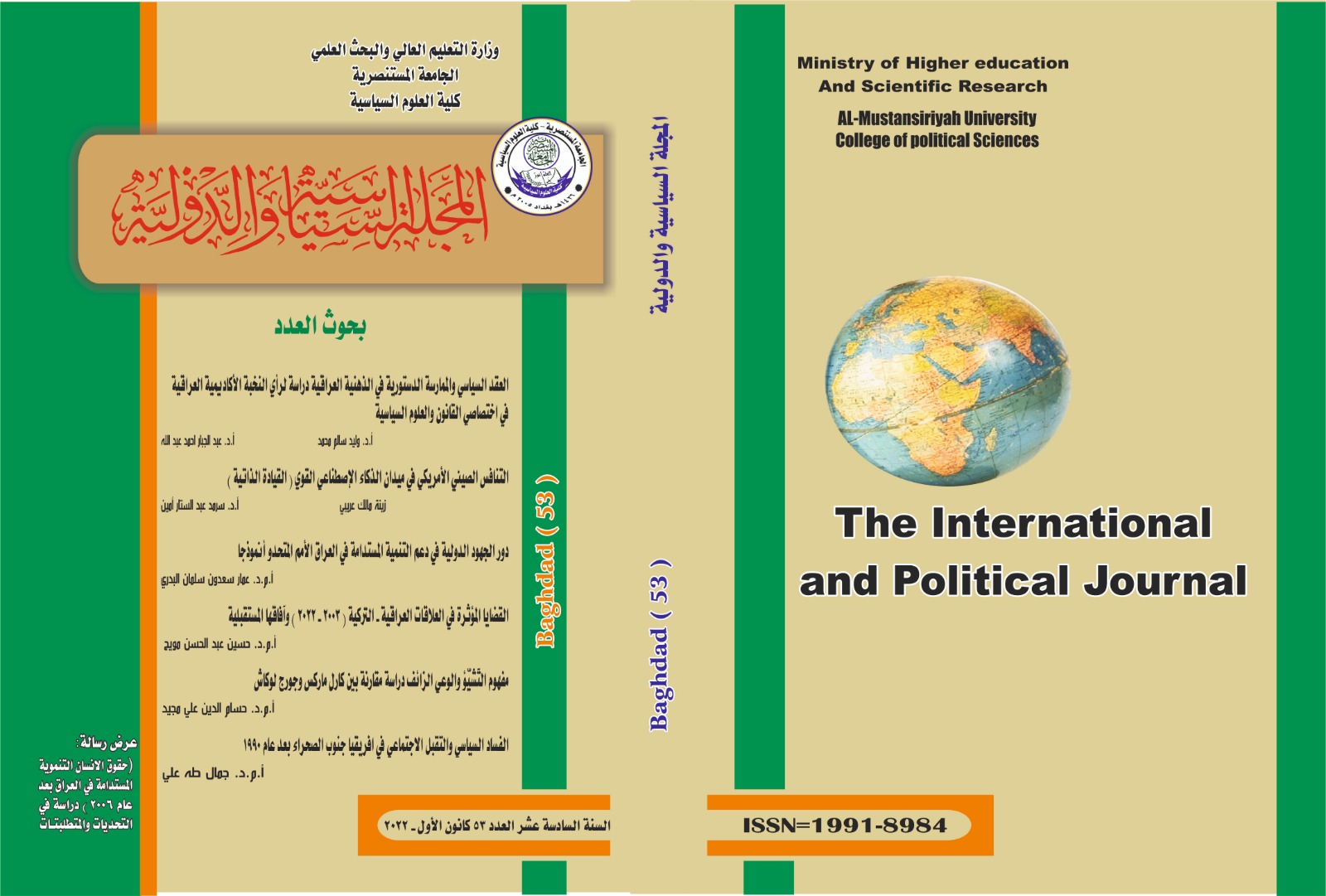The Para diplomacy is an analytical vision in concept and practice: applied models of decentralization governance
international and political journal
Keywords:
Para diplomacy, political decentralization, sub-national governments, the implementation of sovereignty outside the region.Abstract
Para-diplomacy has come to play an important role in federal governance systems, to be the sub-national actor that exercises multiple roles at both the levels of governance and the exercise of sovereignty. Between this and that, local governments and administrations interact outside their local and regional borders, to begin a new phase in managing foreign partnership policies in service of the states and local regions in any country that follows the federal model.
The importance of the research lies in addressing the problem of managing parallel diplomacy (para diplomacy) at the regional, state or other levels, in order to empower new actors inside and outside the sovereign nation-state when sub-national actors seek to exercise complementary roles as far as the exercise of governance and the exercise of sovereignty outside the geographical borders of the countries themselves are concerned, which imposes the necessity of coordination in addressing all problems in managing this type of extended foreign relations only, and the goal of parallel diplomacy lies in managing external files extending beyond the borders of local regional areas, in federal systems of government, which requires searching for effective means and tools capable of managing governance and exercising sovereignty as they are at the core of the jurisdiction of the federal government at the center, provided that the process of understanding the limits of the exercise of powers takes place to avoid any constitutional or administrative problem resulting from the application of the federal system. The research concluded by supporting the research vision of what was proposed by (Panagiotis Soldatos) when he adopted the concept of (para diplomacy) parallel diplomacy in order to manage external powers that are basically classified as central powers of the federal government in federal systems of government and not local governments in the peripheries (Subnational Governments), in order to simplify political work procedures, and proceed with the implementation of development programs at the level of achievement in the states that require political decentralization in sharing power and even exercising sovereignty exclusively, which results in the establishment of subnational governments (Subnational Governments).
Additional Files
Published
How to Cite
Issue
Section
License

This work is licensed under a Creative Commons Attribution 4.0 International License.
Journal Policies
All articles published in the International and Political Journal are licensed under a Creative Commons Attribution 4.0 International License. This means that the Authors can:
The journal allows reuse and remixing of content in accordance with a Creative Commons license.
Copy and redistribute the material in any medium or format.
Policy of publishing in The International and Political Journal
The journal is committed to the ethics of scientific publishing, and according to the publication ethics report of the journal.
The decision to publish is based on the value of the scientific research, to what extent it meets the conditions of publication approved, the declared policy of the journal, and its specialty.
It is based on the principles of the scientific honesty, and originality of research submitted for publication. It deals with the names of reviewers and their reports with great confidentiality.
The opinions published in the journal reflect the views of the authors, and not necessarily reflect the opinion of the editorial board.
The journal does not adhere to the publication of whatever comes to it. The time and place of publication are subject to technical considerations adopted in the editorial plan of the journal.
The journal does not abide to return the research papers to their owners whether accepted for publication or not.
The researcher is to be provided with the acceptance of publication within about 24 WEEKS. As for publication, the editorial board reserves its right in priority of publishing. The arrangement of the research papers in the same issue is subject to technical standards.
Diversify of publishing papers from solid universities and scientific centers from inside and outside Iraq is preferable.
The journal maintains hard copies and electronic archive of the published issues in addition to the publication of the research papers.
The journal also publishes the issues electronically through the website of the journal, and the official website of the Iraqi academic journals, and makes it possible to download. Thus, documenting the intellectual property of the research papers and publishing them internationally is achieved.
Terms of publication may be modified when necessary with no previous notice.
The researcher obtains a copy of his research paper. If he wishes to buy acopy of the journal, the volume costs ID 10000 from inside Iraq and $8from the outside.
The Editorial Board considers that the researcher who submits his research paper for publication in the journal has already read the terms and conditions of publication and agreed on them.
The journal publishes the research papers of the postgraduate students in special issues for this purpose.
Stages of editing and publishing:
The researcher undertakes that his research has never been published before, and has not been submitted for publication to other sides until the end of the evaluation procedures and the acceptance of publication in the journal.
The research papers submitted for publication are to subjected for preliminary examination by the editorial board to determine their suitability for the journal specialization, its policy and the safety of scientific research procedures, and then to indicate its eligibility for scientific evaluation. The editorial board may apologize for accepting the research all together or require the researcher to amend it in accordance with the journal policy before sending it to editors.
After conducting the scientific evaluation, the research paper returns back to the researcher to make the required amendments within a maximum of two weeks.
A copy of the final research paper is to be submitted to the secretariat of the journal a hard copy and a soft copy on a CD, in both Word and PDF format. The researcher is fully responsible for the typing and linguistic mistakes after submitting the full research paper on a CD.
Plagiarism checker
All research papers are subjected to Turnitin program to uncover plagiarism before being sent to scientific evaluation. The researcher undertakes a written pledge to take the legal and moral responsibility, in the event of the emergence of plagiarism or taking from the efforts of other researchers, without a reference to them. The journal uses appropriate anti-plagiarism software, such as Turnitin to check for plagiarism.
Dealing with Allegations of Research Misconduct
The Journal shall take reasonable and serious steps to identify and prevent the publication of papers where research misconduct has occurred, including plagiarism, citation manipulation, and data falsification/fabrication.
Scientific Evaluation:
Scientific evaluation strengthens the research paper submitted to the journal and helps to take the appropriate decision by the editorial board to publish it. It also benefits the researchers to improve and correct their research papers.
The research paper is sent to three evaluators in the same specialty to evaluate












